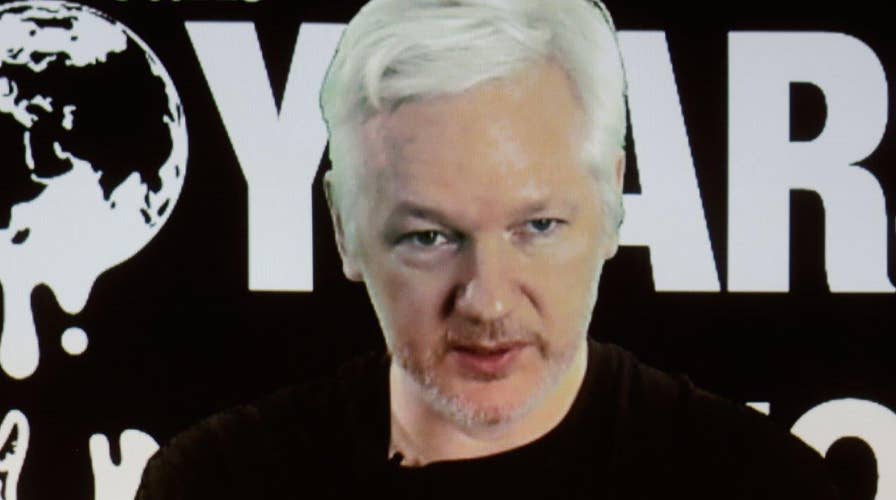Editor’s note: The following column originally appeared in The Hill newspaper and on TheHill.com.
My cell phone started ringing before dawn in Las Vegas last Wednesday.
At first, I thought frat boys had found my number and decided to prank me on the morning of the final debate between Donald Trump and Hillary Clinton. The flood of anonymous calls began politely, checking to see if it was really me. Then they sank into rude and threatening language.
By 4 a.m., I figured out that a new batch of hacked emails from Hillary Clinton’s campaign chairman, John Podesta, had been released, including a note I wrote to Podesta with my cell number.
By dawn, I had new appreciation for the phrase “your cell phone is blowing up.” It literally did not stop ringing with phone calls, buzzing with text messages, chiming with new email.
The barrage of crude suggestions about me — “ignorant, alcoholic and token black on Fox that needs to go,” — was interspersed with cheerleading: “Trump Will Win,” “TRUMP, TRUMP, TRUMP…” and “Juan, you are a piece of … just wait till TRUMP wins by landslide.”
But there was one serious line of criticism of my journalism in the anonymous text messages. The Trump supporters took my email to Podesta as proof that I am a “liberal stooge,” who is guilty of “continued deceit.”
“Now we know you are as corrupt as all the rest,” one Trump-backer wrote.
Another concluded: “You are a sell-out, Criminal Clinton-crony.” A more poetic version read: “How’s it feel being in Podesta’s pocket? Dark in there? If journalists have to kiss ass to get in, that’s ridiculous. In three weeks we will see that those polls were cooked.”
And one nasty note screamed: “Hey, you little bitch, I’m so glad we found out today you are paid for by Hillary and now I will never listen to you again.”
The note to Podesta that led people to this condemnation of how I practice journalism was pretty straightforward.
It came after we had a brief talk at an April 2015 political event in Washington. He was heading out of town to look at organizing efforts in a few states and would be back in ten days.
My note read: “Love to have a chance to speak with you when you get back from your travels.” I gave him the cell number and asked that we set a date. I wanted to talk to the chairman of a leading candidate’s political operation at the beginning of the campaign. That was all.
At that point I was similarly talking with the people running Jeb Bush’s effort on the Republican side and having lunch with Ed Rollins, who later became head of the Great America super-PAC, a pro-Trump group. I was also guilty of sitting down with other Washington journalists to talk with Ben Carson, Ted Cruz and Marco Rubio. I went to Nevada to attend a Bernie Sanders rally and briefly chat with him.
To me, this is the business of journalism: putting in the time to work the phones, develop ties to people — also known as ‘sources’ — at the heart of politics to better inform readers and viewers about the gears moving to drive daily headlines.
But to my Trump critics, the note to Podesta is evidence that this journalist has a hidden political agenda — pumping up Clinton’s candidacy.
In their minds, it fit with emails from reporters found in earlier WikiLeaks dumps sent to Podesta. For example, CNBC contributor John Harwood wrote to him in chummy language critics later described as “flattery.”
And it fit with the email sent by New York Times Magazine writer Mark Leibovich to Clinton Press Secretary Jennifer Palmieri — again released by WikiLeaks — asking for permission to print a quote from an off-the-record interview with Clinton.
There is no corruption here. Yes, Washington reporters looking for access do ingratiate themselves with politicians in order to get face time. This is an everyday reality to me after 40 years working in the news business for The Washington Post, National Public Radio and Fox News Channel. It does not add up to telling lies or covering up wrongdoing.
To the contrary, good sources opening up to reporters led to the Pentagon Papers story and Watergate in the 1970s.
But in present-day journalism, news outlets are defined less by getting stories of interest to mass audiences than by their success in tailoring news for conservative or liberal audiences. Now, there is less investigative journalism. And now the public’s view of a reporter talking to a source on the other side of the political divide is that he is a shill or working with enemies.
So a reporter trying to sit down with Podesta is suspected of becoming his James Boswell, the personal biographer and chief flatterer of the 18th century literary figure Samuel Johnson.
At last week’s debate, Clinton said U.S. intelligence agencies have identified Russian President Vladimir Putin as the force trying to undermine her campaign by feeding Podesta’s hacked emails to WikiLeaks. Putin also has a hostile, repressive history with independent journalism in his country. And Trump, Clinton said, has become a “puppet” for Putin.
Trump fired back at Clinton — “You’re the puppet” — and said Putin had “outsmarted” her when she was Secretary of State. Later in the debate, he also refused to agree to respect the outcome of the election.
At the debate, Clinton said Trump is “talking down our democracy.” She is right. Journalists — including me — now fall into Trump and Putin’s autocratic worldview as pawns of their foes.
Trump really is “talking down” the idea of a free press and honest journalism. I can tell you from personal experience.









































